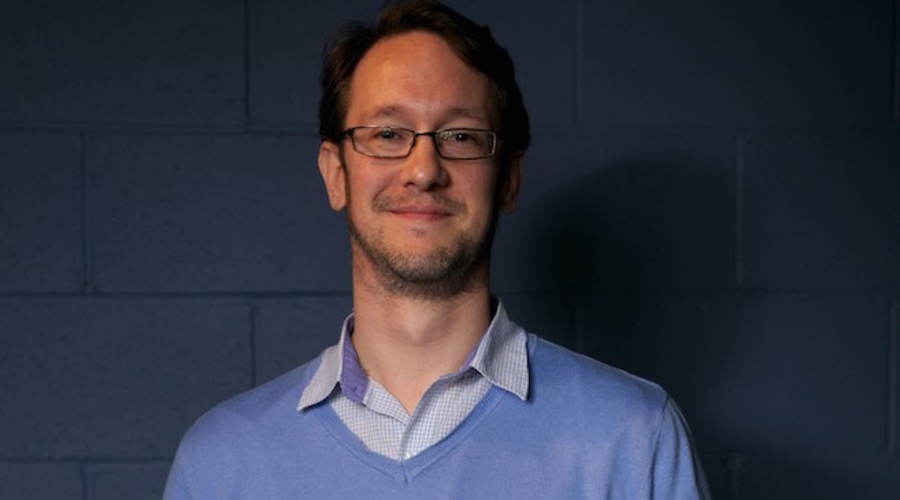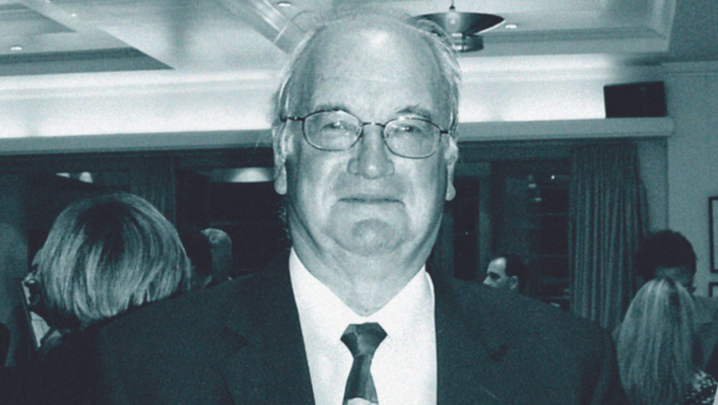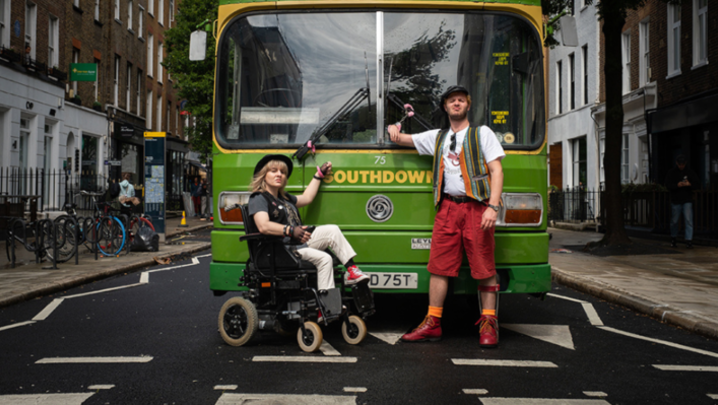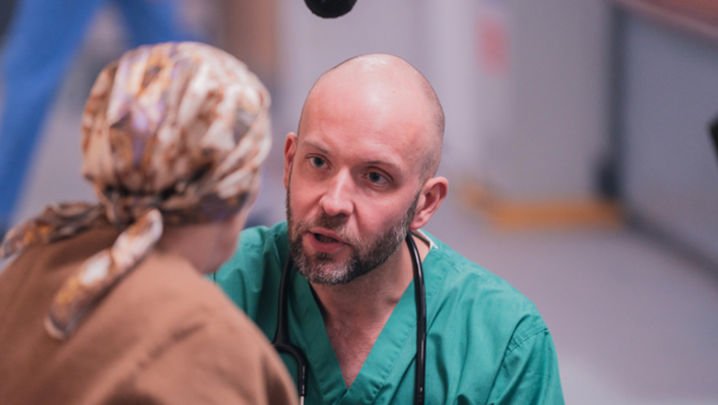Screenwriter Jonathan Brackley struggles with a scene from the second season of Humans but knows help is at hand
Supposed to be writing an episode of season 2 of Humans at the moment, but worrying instead about writing a diary for Television. I feel I should be giving some sort of insight into my process – only I’m not sure that I have one.
Does just sitting down and having a go count?
Now worried about sounding glib.
But that’s really what it feels like most of the time. Think a lot, write a bit, worry a lot, think a bit, rewrite a lot, worry a bit more.
Starting to think worrying might be my process. Which would fit, because I’m concerned a scene in the script isn’t working.
That makes it sound like the scene exists independently of me and it isn’t my fault.
Still can’t work out what’s wrong with the scene. I’m making too many teas. Because I know how to make tea. Can you drink too much tea? Worth a Google.
I am also a very proficient Googler. Whatever happened to AltaVista? Also worth a Google. Cruel irony. Idea for a TV show. The plucky young web-Turks of AltaVista, their ascendancy and sudden decline. Exciting, funny, tragic.
Probably need to find out if any of that is true first. Sounds like it needs research. I prefer to make things up. Still, I’m sure Aaron Sorkin will knock it out of the park. Scorsese to direct the first episode.
Tea and Googling may be part of my process.
Still no idea. Screenwriting’s too hard.
Remembered I have the best job in the world. Coal-mining is hard. Nursing is hard. Writing is fun. And I am lucky. So back to it.
I know when I’ve written something half-decent. And I know when I’ve written pure dross. I think that’s part craft, which you learn, and part instinct, which you don’t.
It’s all the stuff in between that’s problematic. Is that scene actually quite good or actually quite bad? Or worse – fails to elicit any emotional response whatsoever.
This is where having a writing partner is invaluable. Writing-partner tips: 1) Get Sam Vincent or similar; 2) Make sure they don’t have an ego; 3) Don’t have an ego.
Sam and I have been friends since we were 11, which means there’s nothing we can’t say to each other – vital for weeding out darlings for the slaughter.
Sam tells me something about the scene which, now that he says it, is glaringly obvious. Bastard.
Rewriting the scene. Sam pointed out that I was trying to make our characters do something that I really wanted to happen. It was cool and it was clever and it was thematically resonant (I’m talking Bafta-level thematic resonance), but it had absolutely no place in that scene, at that time, with those people.
The characters needed to be doing something else entirely. But I was forcing it because I loved the idea so much. And it was ruining the scene.
A great idea in the wrong context is just stuff. There’s a lot talked about ideas in TV and film. As though they’re the golden eggs from which hits are hatched.
But anyone can have a good idea. Good ideas are 10 a penny. How you deploy, form and articulate that idea is what’s important.
So we figured it out in the end. Don’t know if collaboration is admissible as process – if it isn’t, it should be. It’s certainly the best part of what I do.
And I can always save my beloved idea for the right time and place in another script. Possibly for my new show Lycos: Search for Glory. Mark Rylance to play Chris Lycos*.
*Research TBC







